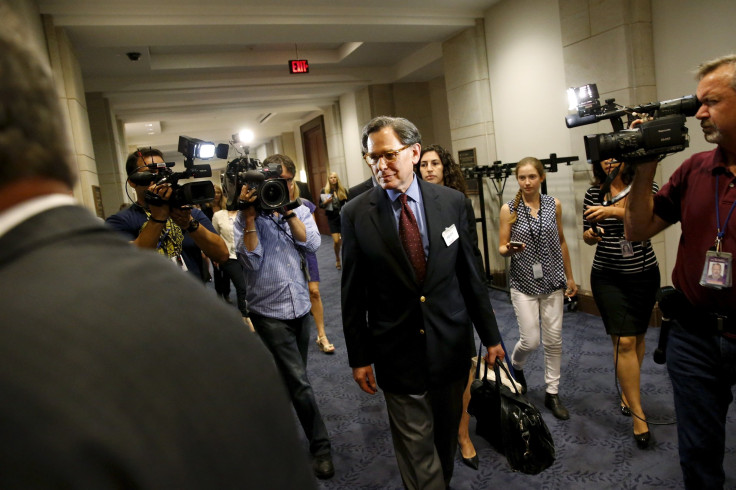Benghazi: Hillary Clinton Adviser Sidney Blumenthal Had Financial Stake In US Libya Policy, Says GOP Lawmaker

Sidney Blumenthal was a principal character in Hillary Clinton's Libyan policy discussions, even though he was neither an official adviser nor an impartial party, according to the Republican chairman of the House committee investigating the 2012 Benghazi terrorist attack. In a letter, Rep. Trey Gowdy of South Carolina claims there was a financial stake for Blumenthal in Libya as he pressed for Clinton to intervene.
"Blumenthal was not merely acting as a steward of information to Secretary Clinton but was acting as her de facto political adviser," Gowdy said in a blistering letter to Rep. Elijah Cummings of Maryland, the Benghazi panel's top Democrat. "While Blumenthal, an old friend of Clinton's, admittedly knew little about Libya and had not ever been to Libya, Clinton seemingly read every one of his emails on the topic that began appearing out of nowhere in February 2011."
Gowdy writes that Blumenthal maintained a frequent dialogue with Clinton about U.S. policy in the country -- nearly half of the emails Clinton received regarding Benghazi and Libya prior to the attacks involved him. Blumenthal, who served as a former White House aide to her husband, was not employed in any official capacity at the time of their correspondence.
Even though Blumenthal tried to tip Clinton's hand on the matter, he admittedly was not an expert in Libyan affairs and never traveled to the country. Gowdy also claims Blumenthal knew that a Libyan intervention "does not contain much political benefit, and offers alternative ways to sell the American public on why the country is involved."
In the section of the memo titled "Blumenthal's motivation revealed -- money," Gowdy delves deeper into their relationship.
"Beyond the pure politics that were occurring at this time, perhaps more disturbing is that at the same time Blumenthal was pushing Secretary Clinton to war in Libya, he was privately pushing a business interest of his own in Libya that stood to profit from contracts with the new Libyan government — a government that would exist only after a successful U.S. intervention in Libya that deposed Qaddafi,” Gowdy wrote, referring to former Libyan leader Moammar Gadhafi.
Gowdy says Clinton often told top policy adviser Jake Sullivan not to disclose the information in the Blumenthal emails "unless we can talk."
Trey Gowdy says "clear decision" by State Dept to "withhold" damaging info on Hillary Clinton/Blumenthal from #Benghazi cmte & American ppl.
— Stephen Hayes (@stephenfhayes) October 8, 2015Clinton is scheduled to testify before the committee Oct. 22 and the 13-page letter suggests that most of the questions will focus on her relationship with Blumenthal.
Prior to the latest release of emails, Clinton said that Blumenthal’s advice was “unsolicited," but the email threads seem to contradict this claim. In many, Clinton reportedly responds by asking follow-up questions.
Gowdy deposed Sidney Blumenthal in a private session on Jun. 16 at the U.S. Capitol in Washington D.C. Congressional investigators issued the subpoena seeking testimony from Blumenthal because of the private intelligence reports included in his emails to Clinton on events in Libya.
© Copyright IBTimes 2025. All rights reserved.






















